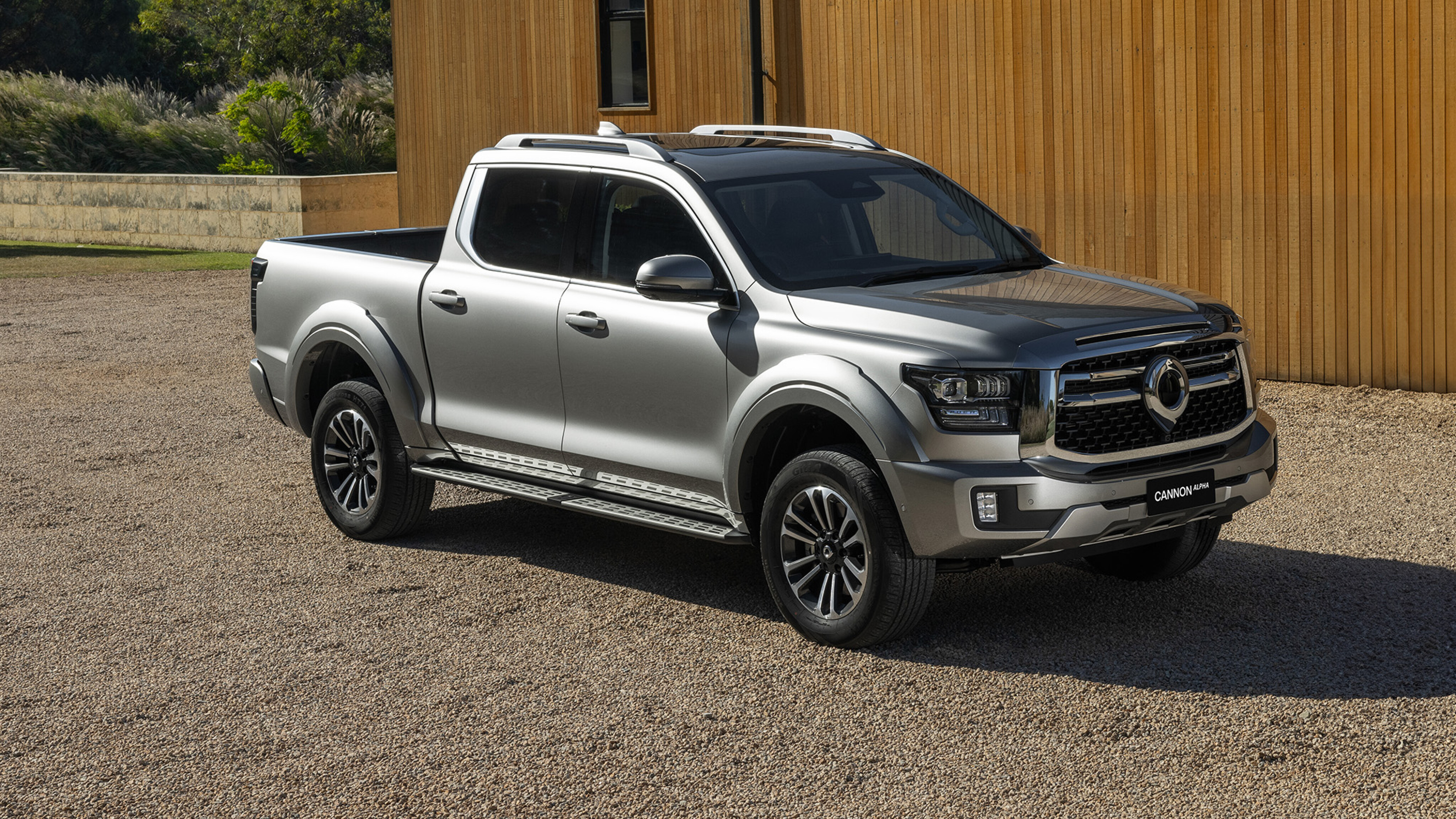
Things we like
- Spacious cabin and tub
- Luxurious features and feeling
- Smooth petrol hybrid powertrain
Not so much
- Frustratingly annoying driver monitor
- Complicated buttons and controls in-screen
- Relatively low payload
GWM (Great Wall Motors) has doubled down on the success of its Cannon ute by introducing a bigger version known as the Cannon Alpha.
More than just a spec-loaded Cannon, the Alpha is a physically bigger vehicle and the first hybrid ute to hit the Australian market – excluding the 48V HiLux, which even Toyota doesn’t call a hybrid.
The Cannon Alpha measures in at 5445mm long (35mm longer than Cannon Ute), 1991mm wide (57mm wider) and is 1924mm high (38mm taller). The wheelbase of 3350mm is longer than that of a Cannon Ute by 120mm.
With the popularity of full-size American pick-ups growing in Australia, the Cannon Alpha bridges the gap between the mid- and full-size utes. The best-selling ute in this class – the Ford Ranger – does well because of its large cabin, so any extra space will be appreciated by buyers who don’t want to go as big as a full-size truck.
The Cannon Alpha hybrid is powered by a turbocharged 2.0-litre petrol engine and an electric motor that is located within the transmission bell-housing with the torque converter. Combined, they deliver an output of 255kW and 648Nm. This is the same powertrain that was recently launched in the Tank 500 4x4 wagon and, as in the Tank, its backed by a nine-speed automatic transmission and full-time, dual-range four-wheel drive.
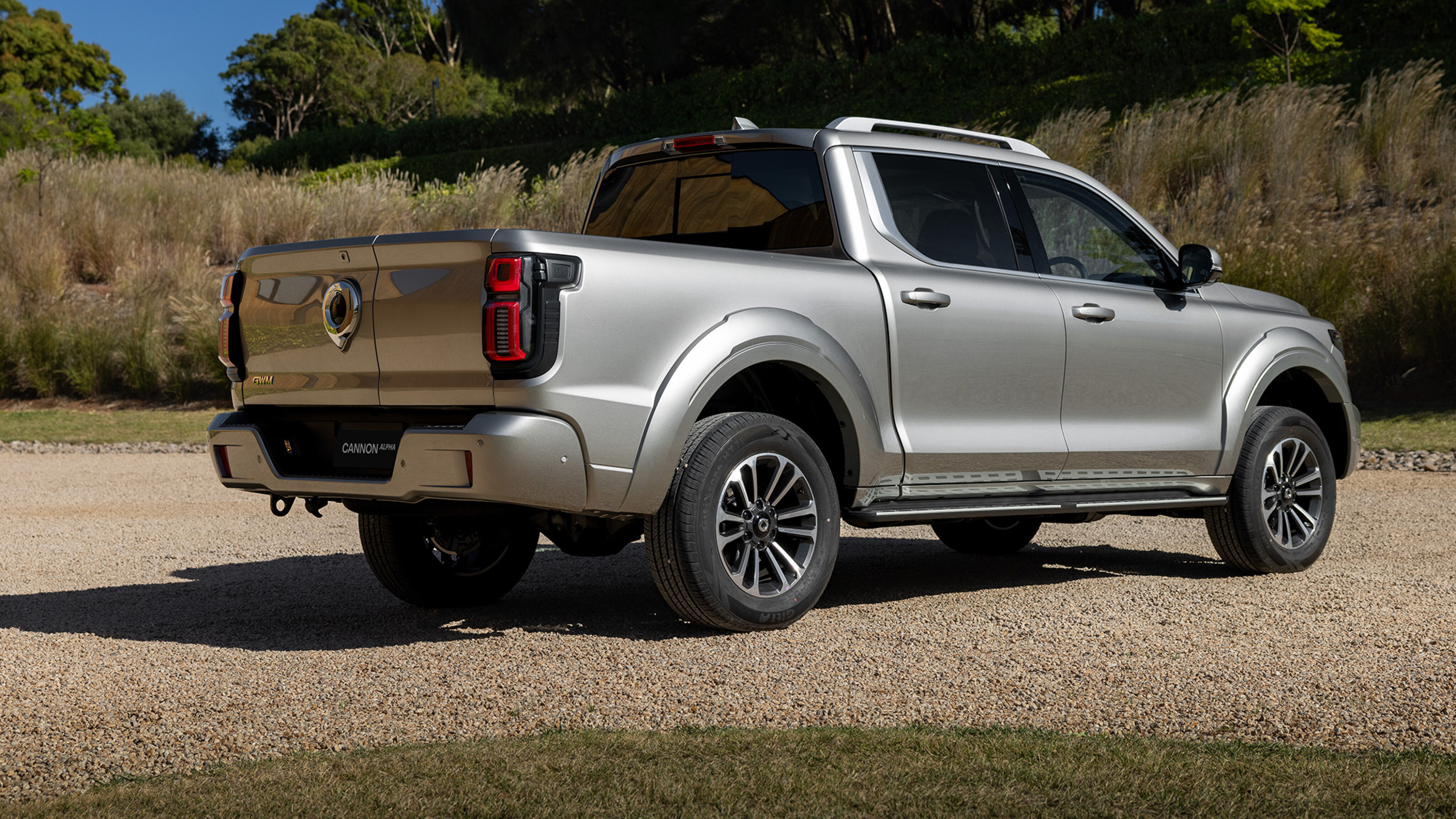
The base-model Cannon Alpha is motivated by a more conventional 2.4-litre turbo-diesel engine making 135kW and 480Nm, and it is backed by the same nine-speed automatic and four-wheel drive system. The Alpha’s off-road chops are bolstered by front and rear locking diffs.
While the hybrid petrol powertrain is definitely the better performer of the two and much smoother, any benefits to fuel economy are only found around town. In official ADR testing the hybrid is rated at 8.9 litres of petrol per 100km to the diesel’s 10.2 litres per 100km, while on the combined cycle the diesel betters the hybrid returning 8.9L/100km compared to 9.8L/100km.
We didn’t get to test its off-road abilities as the drive was on-road only, but we were impressed with the Alpha from the time we stepped inside its spacious cabin. The extra room for driver and passengers is certainly appreciated, and it feels more like a Ranger, Amarok or new Triton in terms of space.
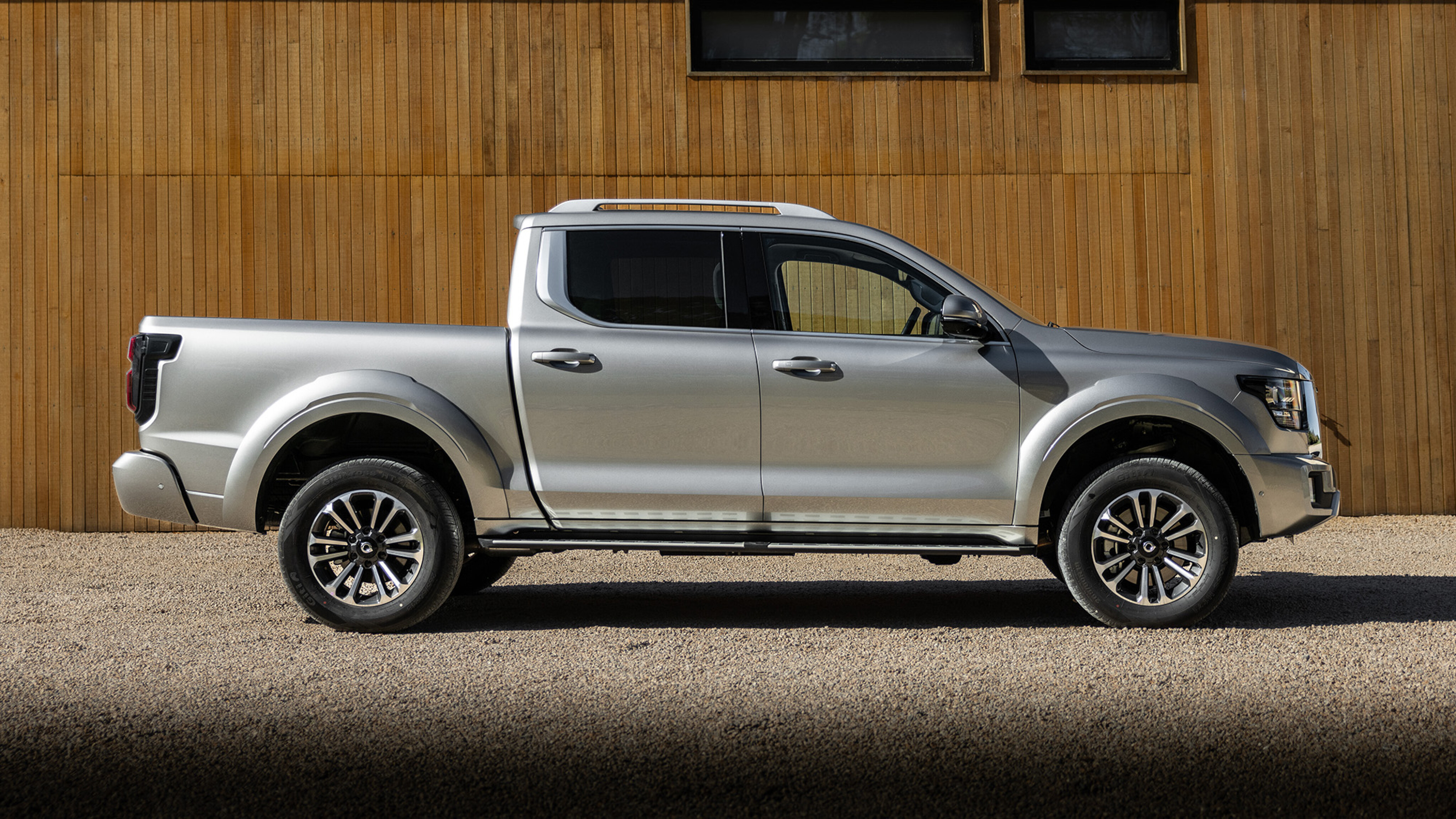
Being the top-spec model, the Alpha hybrid is well-appointed, with Nappa leather-covered seats that are ventilated, heated and have a massage function; a 14.6-inch infotainment screen; and a 10-speaker sound system. It carries over the high-end look and feel of the Tank 500, which it shares a lot of kit with.
Unsurprisingly with 648Nm under the pedal, the unladen hybrid ute displayed plenty of get up and go when you put your foot down. It gives a top-end diesel-like punch in the back without any of the rumble and clatter of a diesel engine, which adds to the high-end feel of the car. The Alpha hybrid has three drive modes – Normal, Eco and Sport – and we found Sport mode to be nicest, as it reduces the regenerative braking every time you back off the accelerator pedal. In Normal and Eco modes, the re-gen is quite aggressive and would take a bit of getting used to.
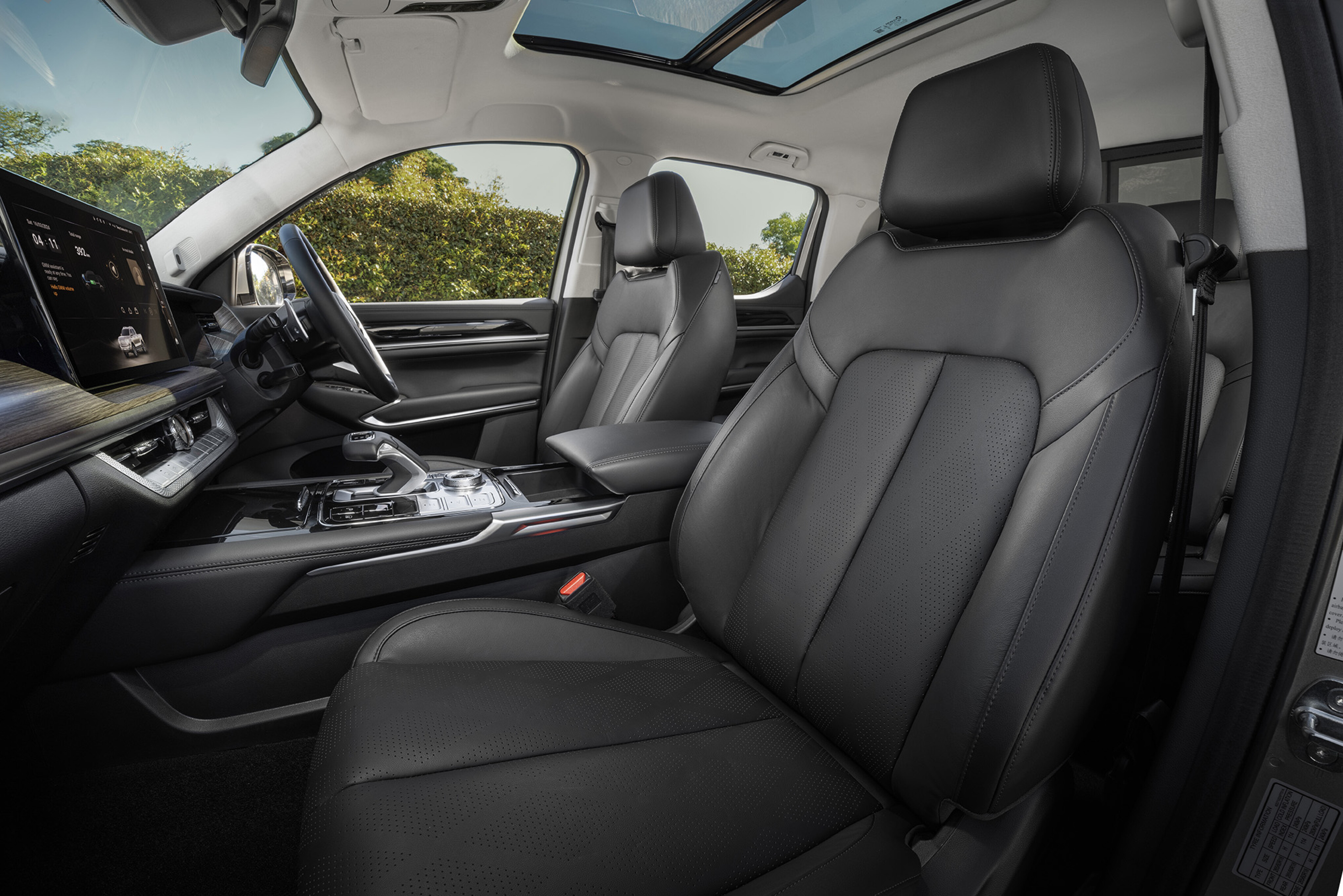
Standard safety kit includes AEB; TPMS; front, side centre and curtain airbags; EPS; ETC forward collision and lane departure warnings; and all the other ADAS features required to gain a five-star safety rating. This includes a driver monitor which we found to be more of a frustration than anything else, as it was constantly beeping and nagging the driver to pay more attention while driving; so much so that it could be a deal-breaker for some potential buyers.
Despite its plush, feature-laden cabin, the Alpha Ultra Hybrid still feels like a ute, with the suspension being a bit jittery on country roads and easily unsettled across broken terrain. We expect it would feel better with some load in the tray or full of passengers. A credit to GWM is that it has fitted 18-inch wheels with sensible tyres to the top-spec Ultra grade, while some manufacturers would be tempted to go to 20 inches or bigger. All three variants of the Cannon Alpha come with a TPMS.
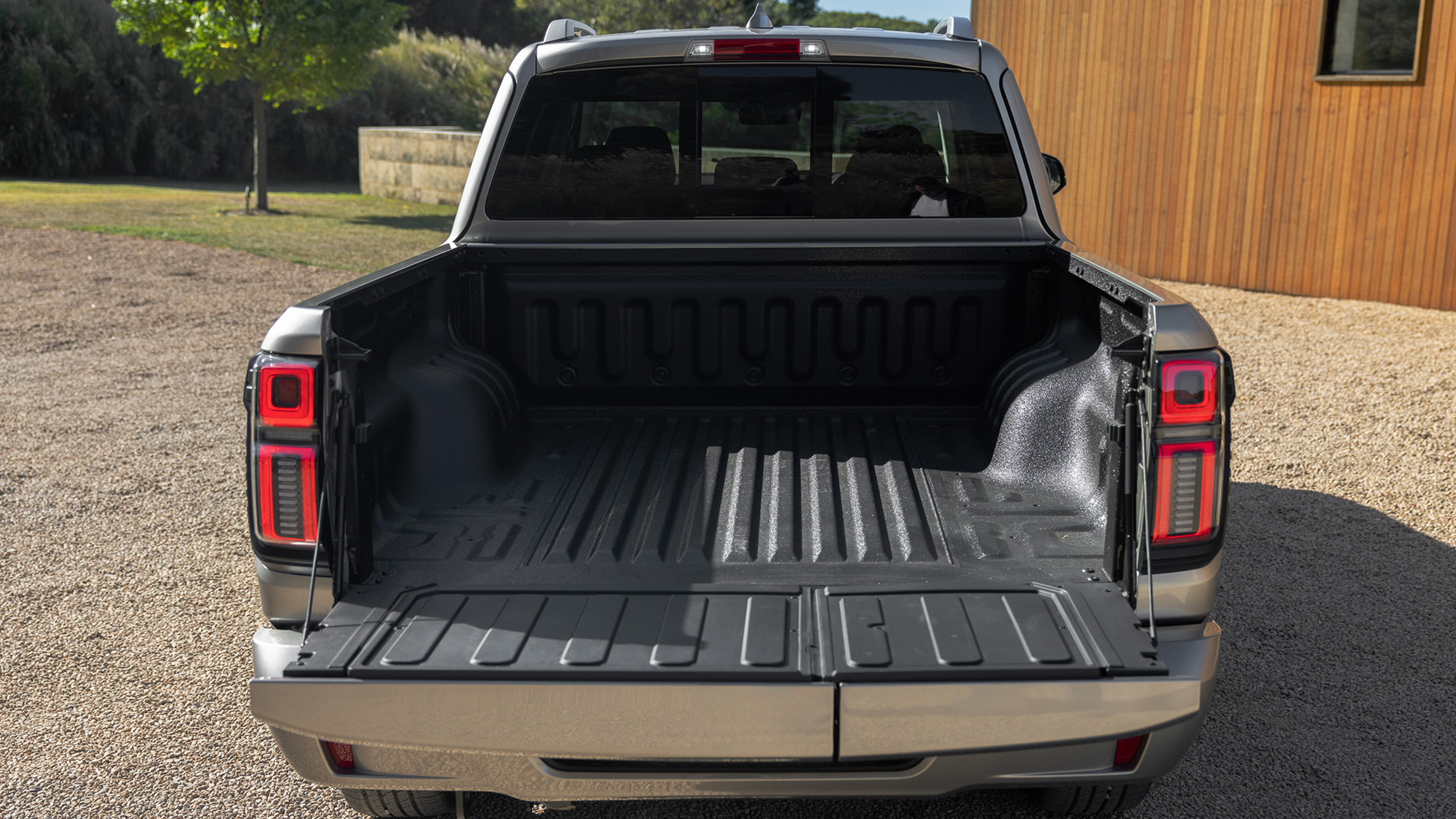
Speaking of loads, the Alpha hybrid has 735kg payload and is rated to pull a 3500kg trailer. For comparison, the non-hybrid diesel Alpha Ultra only adds another 35kg to the payload. The Ultra hybrid has an interesting tailgate on its load bed, similar to what RAM offers on its 1500 in the USA. As well as folding down to open in the regular way a ute bed does, it has a vertical split about a third of the way across that swings open. A novel idea, but I can’t imagine a use for it.
The Cannon Alpha Ultra hybrid delivers an interesting mix of features and luxury with the functionality of a larger than average mid-size ute. Being the first hybrid ute in its class will appeal to many, and the hybrid’s petrol engine is quiet and punchy but it’s no more efficient than a diesel once you get out of the open road.
We’d like to see the hybrid available in lower grade models at a more affordable price, where it might be more appealing to suburban tradesmen.
Specs
| GWM Cannon Alpha Ultra Hybrid | |
|---|---|
| Price | $64,990 drive away |
| Engine | Petrol-electric hybrid |
| Capacity | 1998cc |
| Max power | 225kW @ 5500-6000rpm |
| Max torque | 648Nm @ 1700-4000rpm |
| Transmission | 9-speed automatic |
| 4x4 system | On-demand, dual-range 4x4 |
| Construction | 4-door ute on ladder-frame chassis |
| Front suspension | Double wishbone, coil IFS |
| Rear suspension | Live axle with leafs |
| Tyres | 265/60 R18 |
| Weight | 2575kg (kerb) |
| GVM | 3310kg |
| GCM | 6555kg |
| Towing capacity | 3500kg |
| Payload | 735kg |
| Seats | 5 |
| Fuel tank | 80L |
| ADR fuel consumption | 9.8L/100km combined |
| Approach angle | 28.5° |
| Rampover angle | 19° |
| Departure angle | 23° |
| Ground clearance | 224mm |
| Wading depth | 800mm |
Things we like
- Spacious cabin and tub
- Luxurious features and feeling
- Smooth petrol hybrid powertrain
Not so much
- Frustratingly annoying driver monitor
- Complicated buttons and controls in-screen
- Relatively low payload



COMMENTS